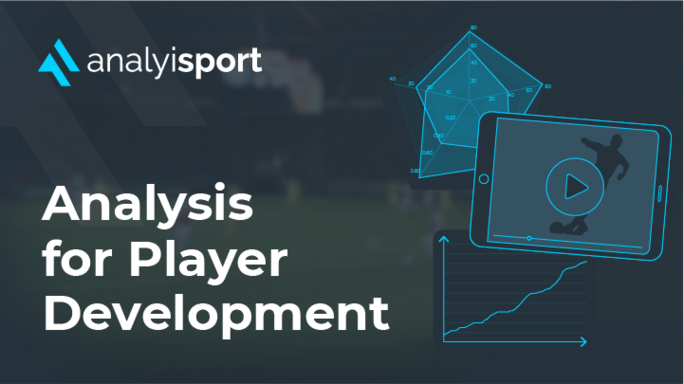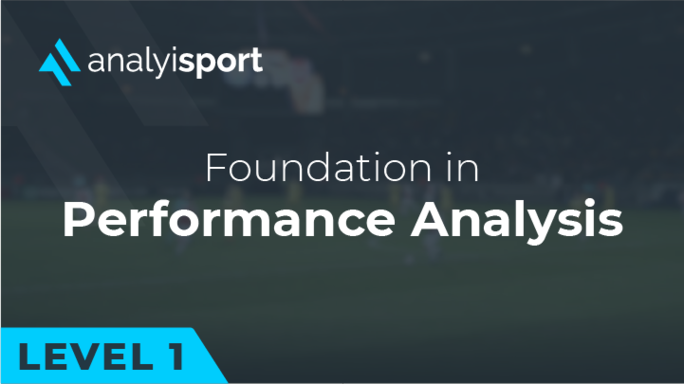How Is Data Being Used at the CONCACAF Gold Cup
How Is Data Being Used at the CONCACAF Gold Cup
Data is becoming football’s great equaliser and allowing more entertainment in the sport. Smaller clubs can work within their budgets and still put out great performances if they work smarter than their opponents. The emergence of teams such as Brighton, FC Midtjylland, Rayo Vallecano CF, Napoli, Union Berlin and RC Lens are all testament to the fact that you don’t have to buy success, you can plan and work sensibly towards it.
Many national sides are also embracing smarter ways of working. This behind the scenes work to make teams as well managed as possible has been on full show at the CONCACAF Gold Cup this year.
The Evolution of Data Analytics in Football
Football data analysis is not something new in football, but its sophistication is. Looking through the history of the beautiful game we see that teams have dabbled in data experiments but it took a long time to implement and be perfected. Models like Expected Goals (xG), Passes Per Defensive Action (PPDA) and On Ball Value (OBV) have brought about a better understanding of the game like never before. But the next area of advancement is already upon us. We now see a marriage of metrics coupled up with AI so that teams can be alerted to players’ performances and act proactively rather than retrospectively.
Companies like Orreco are pioneering injury and nutrition control with tailor made plans through algorithms. It is no exaggeration to say that at some “Big Data ” clubs players are managed 24 hours a day; from the moment they wake, through their daily routine and then even in their sleep there is analysis performed and every extra bit of potential performance is eked out.
Data at the CONCACAF Gold Cup
The continental football tournament is held every two years to decide the best team of North America, Central American and the Caribbean. Since the tournament’s inception the Gold Cup has been shared between the three North American nations of USA, Canada and Mexico, but with Jamaica introducing a special project the hegemony of the Big Three may be challenged.
Technology to Ensure Fairness
Before evaluating how new technologies have helped team performances, there has also been a sustained effort by CONCACAF to help their referees.
Before the start of the tournament a delegation of match officials, 60+ for the Gold Cup and 13 going to the Women’s World Cup, met together to help train for the upcoming events. Simulators that could replicate matches as closely as possible were used at the training camp in Mexico. There was an emphasis on “ensuring consistency”, as the CONCACAF technical Refereeing advisor explained.
The work on improvements carried on through the tournament as after every match officials had to engage with a Gold Cup referees committee. Statistics and videos were used to evaluate performances.
USA’s Internal Investment
The USA have set their sights on adding data to every level of their game so that they have the best chance of improving the vast amount of talent they produce each year. There has been a rollout of technology and analysis from the youth teams of the country all the way up to the national team.
In a recent interview former Senior Director of Analytics Ross Moses explained that “There is an emphasis on centralising and integrating data across the entirety of U.S. Soccer”. There is a marriage of old ways of scouting with new ways of data profiling so that there is the best of both worlds.
What is interesting is that this system that has revolutionised US Soccer has been done mostly through incremental changes and working with staff. Ross Moses himself is an example of this internal growth of the US team as he worked his way up through the ranks to his leadership role. Instead of hiring from outside they have trained within and there is a heavy emphasis on a shared philosophy. US Soccer has also partnered with OptaPro in order to help with data collection, but a lot of the changes have come from creating networks within the system rather than relying solely on external data providers.
Canada Drafting In Help
On the face of it all would seem well for Canada. They had their first World Cup appearance since 1986 in Qatar 2022, having qualified for the World Cup top of their group with most goals scored and least conceded.
However there are some real issues for Canada Soccer with the body looking to potentially file for bankruptcy. The cash reserves have plummeted to CA$ 2.4mil, which is down from CA$7.1mil the year before and the team coach John Herdman believes this could affect their 2026 World Cup preparations. Things have gotten dire.
The problems of money will have to be sorted out, but one smart move that Canadian Soccer has implemented is working with Statsbomb. In November 2022 the partnership between Canada Soccer and Statsbomb was announced. In comparison to the USA’s model Canada does not have the capability to be able to invest in technology from youth to the senior team and grow. Instead they need data now to help them have success with a golden generation with the likes of Jonathan David and Alphonso Davies likely to hit their athletic peaks for the 2026 World Cup.
Statsbomb describe the agreement as allowing Canada Soccer access to “StatsBomb IQ platform, enhancing the technical teams’ ability to visualise pre-game insights and post-match analysis”. This can ensure success in the short term whereas longer term projects may be in the background. The quality of data Statsbomb provides is incredible with Ali Elfakharany, co-founder and head of data product at the company explaining that their AI coupled with human approach means “you can reach 99% accuracy”.
The Jamaica Project
Inspired by a growing “project” approach to international football Jamaica have decided to combine on field marginal gains with investment in their setup to yield better results in the future. The hiring of Heimir Hallgrimsson as the team’s boss is a big move and shows the country is serious about its football. His name should be recognisable as he was the assistant when Iceland rose to qualifying for the European Championships and who humbled England in 2016. He then took over the reins as the nation fought their way to the 2018 World Cup.
Heimir Hallgrimsson has been given full control of the international team project. He has teamed up with the country’s technical Director Wendell Downsell in committing to taking care of development of every tier of the Jamaican Football system. The pair announced that they will be in charge of the development system on the island as well as working with improving grassroots coaching. Plans have been drafted and a revolution in how football is managed on the island has begun with an overhaul of how things are being run from top to bottom.
Lessons will be implemented from Iceland’s example. The similarly sized island nation invested in coaching so that the country had more qualified coaches per 10,000 than England. They also built high quality pitches across the country that were weather resistant and introduced football to the next generation by building lots of areas near to schools so that everyone has somewhere to play.
One area that will make an immediate impact is high quality set pieces. Data shows that usually teams score 25-33% of their goals from dead ball situations, but that this is an underutilised goal tactic. However, Hallgrimsson is an expert. During Iceland’s 2018 World Cup qualifying campaign the team scored 16 goals from set pieces, which was 41% of all their goals during that period. Throw-ins and free kicks were used to strengthen the team but also the manager worked on deploying goalkeeper kicks to cause frustration. We can therefore see this will give his Jamaica team an edge.
What we can see is that the 2023 Gold Cup displayed a lot of technological advances. Referees were specially trained on the latest VAR simulation technology to help decisions be as consistent as possible. But new techniques were also on display in the teams. Jamaica were at the starting phase of a “project” whereas the USA is now deep into its revolution in football culture. It will be interesting to see if the moves made by the Jamaican National Team will allow them to close the gap with other international teams. What was also interesting is that Canada, despite huge financial issues, has also seen the importance of data and their work with Statsbomb was made a priority to secure as much success as possible with a Golden Generation.
Related Courses:
Share this article
Our Learning Pathways
AnalyiSport is for everyone who is passionate about analysis in football. Where are you in your development journey?
Become a Football Scout
As more clubs than ever look to build data into their recruitment process, an understanding of recruitment analysis is your ticket to success in the game.
Related Articles
Our team provides news and insights from the cutting edge of football analysis.







